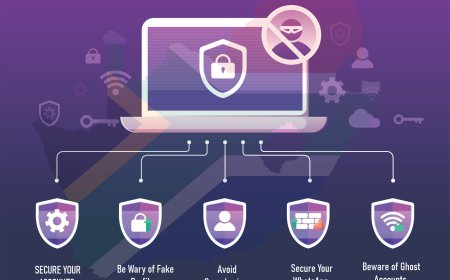WhatsApp GB: The Trojan Horse that Unleashed a Zombie Outbreak-Top Viruses Plaguing South Africa
In the bustling campus of the University of South Africa (Unisa) in August 2024, a college student named Thabo stumbled upon a seemingly enticing offer – a modified version of the popular messaging app, WhatsApp, known as "WhatsApp GB." Little did he know that this decision would lead to a devastating cyber attack that would impact over a thousand unsuspecting users.

In the bustling campus of the University of South Africa (Unisa) in August 2024, a college student named Thabo stumbled upon a seemingly enticing offer – a modified version of the popular messaging app, WhatsApp, known as "WhatsApp GB." Little did he know that this decision would lead to a devastating cyber attack that would impact over a thousand unsuspecting users.
Thabo, an avid technology enthusiast, was always on the lookout for the latest apps and software. When he came across the WhatsApp GB advertisement, he was intrigued by the promise of additional features and customization options. Disregarding the risks, he eagerly downloaded the unauthorized app and began using it, unaware of the dangers that lurked within.
The WhatsApp GB app, as it turned out, was infected with a powerful Zombie virus. This malicious software had the ability to turn infected devices into "zombies," allowing the attacker to control them remotely and use them to carry out further attacks. Thabo, unknowingly, became a carrier of this virus, and as he shared the infected app with his friends and classmates, the Zombie outbreak began to spread like wildfire.
Within a matter of days, the Zombie virus had infected over a thousand Unisa students and staff, turning their devices into a vast network of compromised systems. The Zombie-controlled devices were used to launch distributed denial-of-service (DDoS) attacks on various online services, causing widespread disruption and frustration among the affected users.
In the aftermath of the Zombie outbreak, it became clear that the incident was just one example of the growing threat of cyber attacks in South Africa. Other viruses, such as Trojans, worms, and spyware, were also reported to be causing significant harm to individuals and organizations across the country.
Trojans, for instance, were often disguised as legitimate software, tricking users into installing them and granting access to their systems. Worms, on the other hand, were self-replicating malware that could spread rapidly through networks, while spyware was designed to secretly gather sensitive information from infected devices.

To combat these threats, cybersecurity experts emphasized the importance of user awareness, the use of trusted and secure software, and the implementation of robust security measures at both the individual and organizational levels. The Unisa incident served as a wake-up call, highlighting the need for a proactive and comprehensive approach to cybersecurity in South Africa.
What's Your Reaction?
 Like
0
Like
0
 Dislike
0
Dislike
0
 Love
0
Love
0
 Funny
0
Funny
0
 Angry
0
Angry
0
 Sad
0
Sad
0
 Wow
1
Wow
1








































